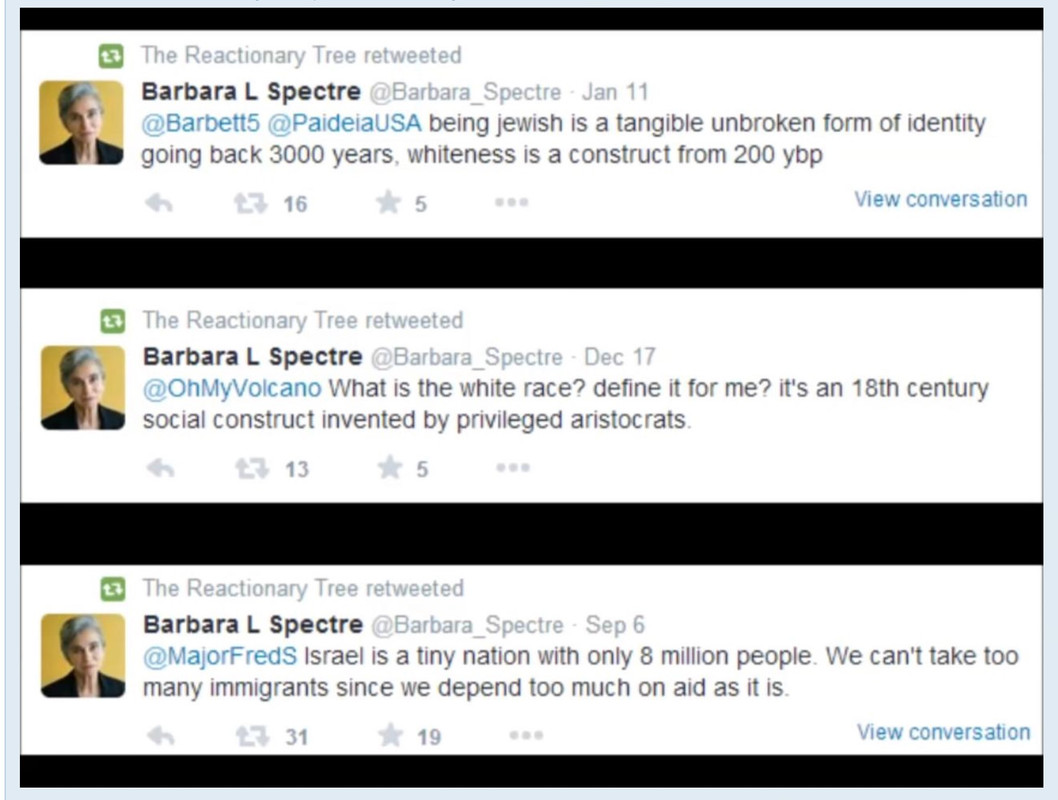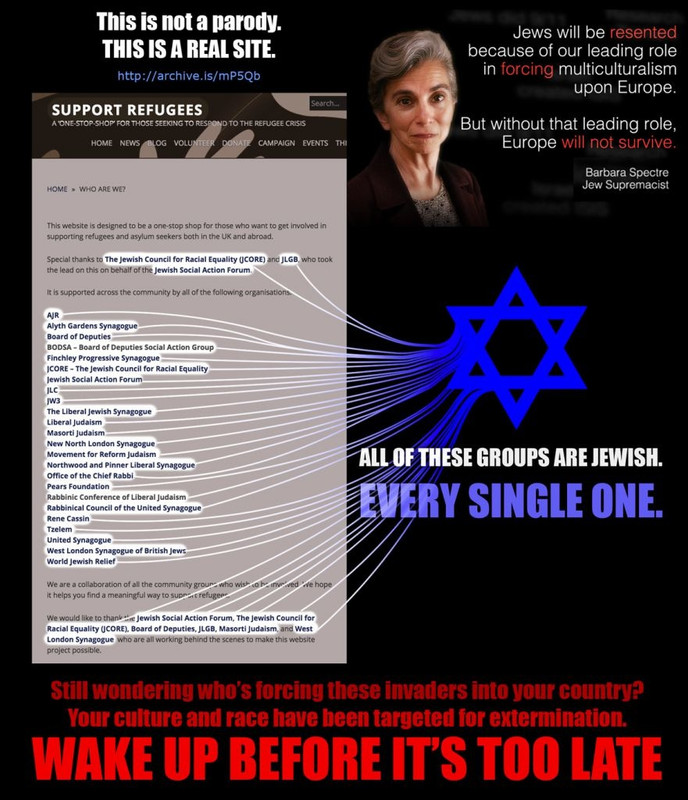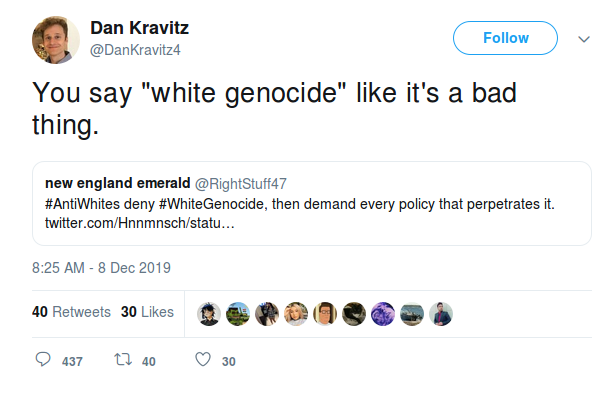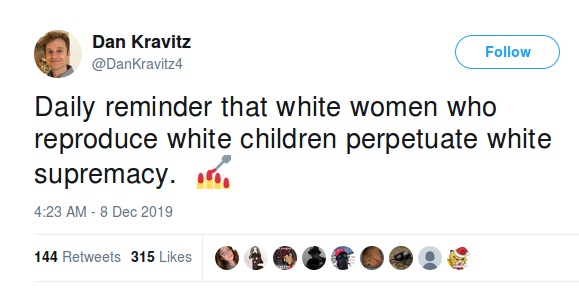bombsaway, 62% of the US population is Christian... which means they are actually slightly under-represented in your list of agencies.bombsaway wrote: ↑Fri Oct 03, 2025 1:22 am The devil is in the details yes.
https://chatgpt.com/share/68df24d3-2fd0 ... 6fa8807150
So is this a fair question to ask? Is it fair for us to look at these agencies? 6/10 are explicitly Christian, if we look through this, will we find strong evidence of intent "to engineer more compliant (enslaved) societies" - your term
Jews, on the other hand are just ~2% of the US population (and even less overseas)... which means for them to appear on the list at all (e.g. HIAS) is surprising.
More importantly: your list is capturing refugee assistance organizations' total intakes by volume, which speaks to organizational capacity and participation -- not to changes in policy and hence the weakening of national defenses (immunity) to such initiatives.
In other words, it isn't just about total volume -- it’s who ensured that there was a refugee program to begin with, and who expanded/protected it when it was challenged by patriots and nationalists. On that dimension (per some AI assistance, since you have now opened that can of worms):
Thank you for helping us get to the bottom of this, bombsaway.In other words, Jewish orgs shaped the rules of the game, not just played on the field. Policy shifts and legal barriers have been the "Rate-limiting steps" (to borrow a term from systems thinking), where Jewish organizations' roles seem least replaceable— they've often been the ones to break through when programs were at risk of collapse (e.g., 2017 U.S. cuts). Christian/secular groups are more interchangeable for day-to-day implementation, as their strengths (volume, data) could theoretically be substituted by governments or other NGOs. Absent Jewish advocacy, Western programs might resemble more restrictive models (e.g., Australia's offshore processing), with far lower magnitudes. Jewish contributions uniquely emphasized legal/moral leverage, making programs more resilient and scalable.
- U.S. Refugee Act of 1980: Founding and Shaping the Modern System: HIAS was a founding VOLAG (one of nine original agencies) and actively helped draft the Refugee Act itself, lobbying Congress to include broad definitions of refugees and annual admission ceilings. This created the infrastructure for over 3 million resettlements since 1980, enabling surges like Southeast Asian refugees (1980s). (Comparison: While Christian VOLAGs like Church World Service joined later and handle high volumes today, HIAS's role was pivotal in the Act's humanitarian framing, which secular groups like the IRC—founded by Jewish activists—built upon.)
- International Rescue Committee (IRC) Origins and Global Expansion (1930s–Ongoing): Founded by Jewish intellectuals (e.g., Albert Einstein, Varian Fry) to rescue Europeans from Nazis, the IRC evolved into a major secular VOLAG, resettling hundreds of thousands into the U.S. and Europe. Its Jewish roots influenced early models for crisis response, scaling to operations in 40+ countries. (Comparison: IRC is now secular but outperforms many Christian orgs in innovation; e.g., it resettled more Afghans post-2021 than some Lutheran groups, per U.S. data.)
- Litigation and Legal Protections in the U.S. (2017–2020): HIAS and IRAP (with Jewish founders and leadership) led lawsuits blocking Trump-era travel bans and admission cuts, preserving tens of thousands of slots (e.g., ~25,000–40,000 annually) that would have been eliminated, including family reunifications. This set precedents for future protections. (Comparison: Christian groups like World Relief filed supportive briefs, but Jewish-led litigation drove the wins; secular orgs like the ACLU amplified but didn't originate these cases.)
- Pioneering Private/Community Sponsorship Models (1970s–Ongoing): Jewish federations and synagogues pioneered and piloted these in Canada (PSR program, adding ~350,000 admissions since 1978), the UK (Community Sponsorship, scaling to thousands post-2016), and the U.S. (Welcome Corps, 2023, potentially adding 10,000+ slots outside quotas). These create additional streams beyond government ceilings. (Comparison: Christian churches adopted similar models later and sponsor large numbers, but Jewish groups provided the initial proof-of-concept and lobbying, often in smaller but high-impact pilots; secular efforts like Canada's Group of Five are more bureaucratic.)
- UK Lobbying for Specific Crises (2010s–2020s): World Jewish Relief (WJR), René Cassin, JCORE (Jewish Council for Racial Equality), synagogues, and the Chief Rabbi lobbied the UK government into launching and expanding Syrian (Vulnerable Persons Resettlement Scheme, ~20,000 resettled) and Ukrainian (Homes for Ukraine, ~200,000+ by 2024) schemes, using moral appeals in Parliament. (Comparison: Christian groups like the Salvation Army provided on-ground support, but Jewish advocacy was key in policy pledges; secular NGOs like Refugee Action focused on integration rather than intake expansion.)
- On-Ground Humanitarian Aid Providing Political Cover (2000s–Ongoing): IsraAid (Israeli-founded) and WJR delivered aid in crises like Greece (2015, aiding ~1 million migrants), Ukraine (2022, supporting 100,000+), and elsewhere (e.g., Rohingya in Bangladesh), giving Western governments data and visibility to justify higher intakes without domestic backlash. (Comparison: Christian orgs like Caritas handle massive aid volumes but less in "hot zones"; secular groups like Médecins Sans Frontières are similar but less tied to policy lobbying.)
- European Advocacy and EU Policy Influence (1990s–Ongoing): Groups like the European Council on Refugees and Exiles (ECRE, with Jewish-linked members) and PaN (Paideia Network, founded by Barbara Spectre in Sweden) pushed for expanded EU asylum directives, influencing policies that resettled ~500,000+ Syrians (2015–2020). In Germany, Jewish communities lobbied for Merkel's "Wir schaffen das" policy, aiding 1 million+ intakes. (Comparison: Secular EU NGOs like UNHCR partners drive data, while Christian groups focus on family hosting; Jewish roles stand out in human rights framing, often invoking historical parallels.)
- Canadian Expansions and Global Modeling (1980s–Ongoing): Jewish Immigrant Aid Services (JIAS) and federations shaped Canada's blended visa programs, resettling ~50,000+ from crises like Somalia and Afghanistan, and exporting the model to Australia and New Zealand. (Comparison: Christian orgs like Mennonite Central Committee sponsor many, but Jewish groups innovated the community-led aspects; secular government programs scale it further.)
- U.S. and Global Crisis Mobilization (1990s–2020s): During Bosnian (1990s, ~100,000 resettled), Somali (ongoing, ~150,000), Afghan (2021–, ~100,000+), and other crises, HIAS, JDC, and synagogue networks mobilized resources and lobbying, often coordinating with Israel-based groups for cross-border aid. (Comparison: Christian VOLAGs like Episcopal Migration Ministries handle placement logistics for larger shares, but Jewish orgs excel in rapid-response advocacy, adding net capacity.)
- Human Rights Documentation and Agenda-Setting (1970s–Ongoing): Human Rights Watch (co-founded by Jewish leaders like Robert Bernstein and Aryeh Neier) and Amnesty International chapters with Jewish involvement documented abuses, forcing U.S./EU shifts that increased placements (e.g., post-Yugoslavia, adding ~200,000 slots). (Comparison: These are secular but Jewish-rooted; pure Christian advocacy, like Jesuit Refugee Service, is more service-oriented than investigative.)
- Innovation in Digital and Legal Tools (2010s–Ongoing): IRAP developed apps and legal clinics aiding ~20,000+ refugee applications annually into the West; HIAS's global affiliates influenced UN Global Compact on Refugees (2018), committing nations to higher targets. (Comparison: Secular tech NGOs like Techfugees innovate similarly, but Jewish-led tools focus on legal access; Christian efforts are more community-based.)
Let's also consider that Christian groups are well-known for humanitarian aid across-the-board, being highly-active in donations, volunteer work, etc., often over-represented in general in these areas. To the contrary, Jewish organized efforts are more intensely and exclusively focused in things like refugee movement, proportionally speaking.
Now why in the hell do you suppose that is?
The bottom-line is that Christians participating in any humanitarian effort (e.g. disaster relief, volunteer work, feeding hungry) is typical of Christians, and given their vast numbers, it is not surprising to see significant participation.
Jews, on the other hand, are a tiny minority, and are not especially known for participating in global humanitarian efforts (e.g. volunteer work) as are Christians. Jews are instead highly, conspicuously concentrated in refugee migrations into the West and, again, NOT into Israel.
Explain away, bombsaway. Remember: you have to address all the evidence, simultaneously. We have now confirmed that:
- Jewish ideology supports that the West will (and should) be overrun by Islam as the "broom of Israel" (i.e. for Jewish benefit)
- Jewish organizations are very active participants in these efforts
- The entire refugee Western migration program would not be anywhere near its current order of magnitude, if not for Jewish efforts
- These same efforts are totally absent in Israel
Regarding Jewish global ambitions, also see: https://gab.com/White__Rabbit/posts/114106623378691858An urgent task shared among religious Jews for many generations into the past has been to “bring Moshiach (Messiah)”.[19] Although the process by which this “bringing” should occur has been interpreted in different ways over time, Jews across denominations now generally agree it is their own efforts that will materially bring about creation of their Moshiach, rather than a truly divine or magical placement of the Moshiach upon the earth by God. Israeli Orthodox Rabbi David Bar-Hayim states:[20]
“If a person believes in and expects a miraculous, supernatural messianic period and messiah, then the question of where he comes from or how he appears need not be asked. The answer is obvious – it’s all miraculous and there’s nothing else to know. But if you do not believe in such a fairy tale story, as Rambam [another name for Maimonides, a philosophical and legal authority in Judaism] did not, as many of the sages did not, and as I do not, then you must ask yourself where this Moshiach comes from, how he arises, and how this historical process plays itself out.
This is precisely what Rambam explains to us. When the Jewish people are successful in establishing a true Jewish form of government headed by an individual who lives according to the Torah, believes in the Torah, and wishes to lead the Jewish people according to its basic fundamental precepts and concepts, when such a person arises and the Jewish people follow him, and he is successful in overcoming the Jewish people’s enemies, then we can begin to assume this is the Moshiach.”
Israeli journalist Yossi Gurvitz describes what he observed in Orthodox Judaism, such as that “bringing Moshiach” is first about subordinating other nations, and only then identifying who Moshiach ultimately is or was, after-the-fact:[21]
“Now, when religious Zionists look at reality, they say: ‘We’ve got a state. We’ve got weapons. We’ve got a Jewish army. This hasn’t happened for 2,000 years. What this means is that God wants us to bring about the Messiah, that God wants us to build the Temple.’ They skip over all the conditions that are imposed by the Talmud on what a Messiah must be, and go back to Maimonides. And Maimonides says, ‘There is no difference between our time and the time of the Messiah, other than the subordination to kingdoms.’ In other words, the only difference between the time of Maimonides – he died in 1204 – and the time of the Messiah, is who is subordinate to whom.’ Are the Jews subordinate to ‘kingdoms,’ to other nations? Or can they subordinate other nations? And that is how Maimonides begins his Book of Kings. He explains what the rules are for a king, what a king can do. It emerges from the belief that, yes, there can be a king. You don’t have to first have a temple. You don’t need God to come down from the sky and point at someone and say, ‘That’s the Messiah.’ You can have a king, and if he is victorious, then he’ll also be the Messiah.”
Reform Judaism (a more liberal form of Judaism) rejects the notion of an individual Messiah and works instead toward a Messianic Age, still with the view that it is Jewish efforts – and not divine intervention – that will bring about this Messianic shift:[22]
“Partners with God in tikkun olam (repairing the world), we are called to help bring the messianic age nearer. We seek dialogue and joint action with people of other faiths in the hope that together we can bring peace, freedom, and justice to our world. We are obligated to pursue tzedek (justice and righteousness), narrow the gap between the affluent and the poor, act against discrimination and oppression, pursue peace, welcome the stranger, protect the earth’s biodiversity and natural resources, and redeem those in physical, economic, or spiritual bondage. In so doing, we reaffirm social action and social justice as a central prophetic focus of traditional Reform Jewish belief and practice.
In the 19th century, the earliest Reform Rabbis rejected all end of days beliefs as superstitious and anti-intellectual. They made a radical change: instead of praying for a Messiah, we now pray for a Messianic Age.”
Whereas there are differing opinions among Jews – especially of differing denominations – about the details in prophecies of Judaism and the Messianic Age, two views in particular are especially common, with most religious Jews (and many non-religious) accepting some version of at least one or both of the following:
Jews will have a special, privileged position as they come to rule (or heavily influence) the world from Israel.
The entire world will become one, globalized nation as a result of Jewish efforts.
Evidence for the prevalence of these views among Jews and Judaism is manifold. Rabbi Harry Waton was a prolific author, social philosopher and Torah scholar whose works promoting Marxism gained significant attention and readership in the early 20th Century. In 1939, he stated:[23]
“The Jews will become the masters over the whole earth and they will subordinate to themselves all nations, not by material power, not by brute force, but by light, knowledge, understanding, humanity, peace, justice and progress. […] It is not an accident that Judaism gave birth to Marxism, and it is not an accident that the Jews readily took up Marxism; all this was in perfect accord with the progress of Judaism and the Jews. The Jews should realize that Jehovah no longer dwells in heaven, but he dwells in us right here on earth; we must no longer look up to Jehovah as above us and outside of us, but we must see him right within us.”
A statement from Zionist leader Nahum Sokolow in 1922 further highlights the overlapping motives of a globalized world, and Israel (and Jews) enjoying a special position therein; suggesting the League of Nations (predecessor of the United Nations) was a Jewish-created steppingstone toward Jerusalem as a site of global significance:[24]
“The League of Nations is a Jewish idea, and Jerusalem will some day become the capital of the world’s peace.”
Rav Michael Laitman, esteemed Kabbalist and widely respected within the Jewish community, in 2019, indicated the “special role” Jews have is one which involves driving the entire world to becoming one single, globalized nation:[25]
“[…] eventually, [Jews] will understand, they have a special role, that they have to show the entire world how to connect, and to show them the method of connection – the force of connection – to introduce this upper force to them, for everyone to use it and become one nation.”
Overall, it can be reasonably established that there are large contingents of religious Jews who believe their efforts on earth to “bring Moshiach” will lead to a literal, material change in global society, which ultimately benefits the Jewish people. Jews are “called to help bring the messianic age nearer” through various political and social initiatives, and their power may be leveraged to that end.[26]
https://codoh.com/library/document/ai-t ... visionism/
All in all, your attempts at "damage control" to conceal these concerning facts are futile. Any thinking person will be troubled by this and, without 'Holocaust' guilt, will naturally resist these organized Jewish attempts to control and subvert nations.





